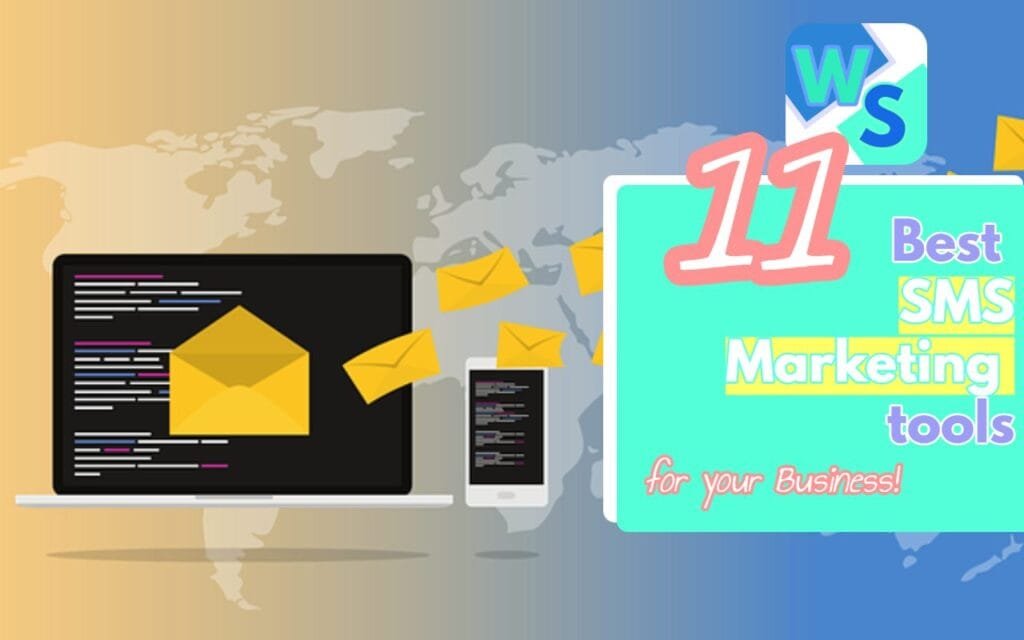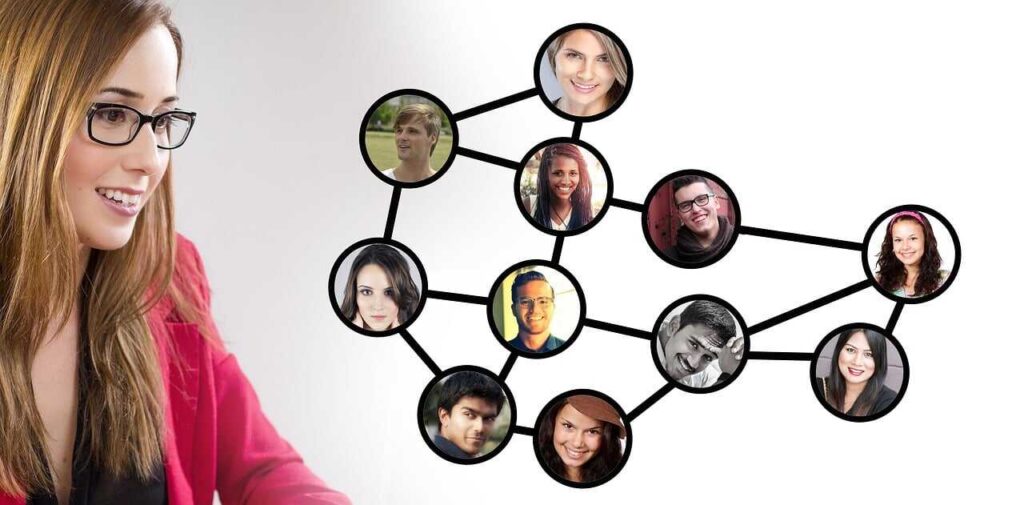Why Innovation Matters
Innovation is like the secret ingredient that spices up a business’s recipe for success. Being innovative helps a company stand out and keeps it one step ahead, kind of like a chess game where you’re always planning your next move. Knowing the ins and outs of different innovations, like updating what’s already there or shaking things up completely, can make a world of difference.
Keeping It Old School vs. Shaking Things Up
Keeping It Old School is all about making what you’ve got better and better. Think of it like phone apps that get updates—you fix bugs and throw in new features to keep users happy and coming back. This way, businesses stay on the ball and not fall behind.
On the flip side, Shaking Things Up is when you really wanna wow people by doing something no one’s seen before. This kind of innovation can flip an entire industry on its head. Remember when streaming took over regular TV and movie theaters? It’s that kind of game-changer (thanks to the folks at Harvard Business School Online).
| Kind of Innovation | What’s the Deal? | Example |
|---|---|---|
| Keeping It Old School | Making the good stuff even better | Software updates |
| Shaking Things Up | New ideas that make people rethink everything | Streaming services |
Different Flavors of Business Innovation
Business innovation isn’t one-size-fits-all—it’s about mixing up things creatively to grow and get slicker. Check out these flavors:
Product Innovation: Dreaming up new goodies or sprucing up current ones to make customers happy.
Process Innovation: Tweaking how things are done to cut down costs or speed things up—like using robots on an assembly line.
Business Model Innovation: Mixing up how you sell things to customers, like when you switch to a subscription model.
Service Innovation: Making the customer experience so good that word of mouth does your marketing for you. Think 24/7 online support (Harvard Business School Online).
| Type of Innovation | What’s the Deal? | Example |
|---|---|---|
| Product Innovation | New or upgraded goodies | Smartphone perks |
| Process Innovation | Doing things a faster, cheaper way | Robotic assembly lines |
| Business Model Innovation | Changing the sales game | Subscription boxes |
| Service Innovation | Ramping up the service factor | Online help desks |
Getting a good grip on these innovation types helps companies stay fresh and ready—ever the cool kid on the block. They help businesses avoid getting stuck in a rut and ensure customers keep coming back for more. Want to dig deeper? Check out our tips on [competitive edge](link to /types-of-competitive-advantage) and [business smarts](link to /competitive-advantage-in-business).
Sustainable Competitive Advantages
Definition and Significance
Sustainable competitive advantages are those nifty traits that let a company outshine its rivals consistently over time. Simply put, they’re like having a secret sauce that keeps your business ahead of the pack. AchieveIt says these advantages are super important for sticking it out for the long haul in the marketplace. With them, a business can come up with unique offerings, keep raking in the cash, and fend off competitive heat better than any newbie could dream.
A business with an edge like this stands strong, capable of weathering market ups and downs without breaking a sweat. Consider Microsoft—by June 1, 2021, they boasted a return on invested capital (ROIC) of 26.4%, towering over their 6.8% weighted average cost of capital (WACC). This spells serious value for shareholders and shows off their resilient business moat, or protective barrier (Investopedia).
Elements of Sustainable Advantage
To keep that advantage sustainable, companies usually rely on a few solid building blocks:
| Element | Description |
|---|---|
| Brand Reputation | A solid name can pull in customers based on good vibes alone. You need to keep them smiling and satisfied. (Qualtrics) |
| Economies of Scale | When a company grows, they often slash costs per item, powering them to offer killer prices and stay ahead. |
| Network Effects | The more folks use a service or product, the better it gets for everyone involved, boosting its allure. |
| Intellectual Property | Patents and trademarks help lock in your genius ideas, pushing copycats to the sideline. |
| Legal Exclusivity | Certain rules and regs can keep competitors at bay, putting some serious locks on market doors. |
These factors are the secret ingredients to standing out from the competition, building loyalty, and keeping customers coming back for more. Sustainable advantages pave the way for profits and ensure businesses stay in the game long enough to see their efforts pay off. Want to geek out over competitive edges in marketing? We’ve got more info waiting in our pieces on competitive advantage in marketing and competitive advantage definition.
Strategies for Competitive Edge
Boosting a sustainable edge over the competition isn’t just a dream; it’s a necessity. Businesses gotta jump on a few key tricks to make their mark in their own corners of the world. This section takes a closer look at three big moves: brand differentiation, low-cost game plan, and focused market strategy. Let’s break it down into plain English.
Brand Differentiation
Imagine being the stand-out in a sea of sameness. Brand differentiation means giving your business its own vibe in the jungle of buy and sell. Companies do this by offering top-notch quality, fresh features, or customer service that knocks your socks off. A solid brand image can draw folks like moths to a flame, especially if that awesome service stays top-notch over time (Qualtrics).
| Differentiation Factors | Impact on Consumer Choice |
|---|---|
| Unique product features | Boosts recognition and snags more buyers |
| Stellar customer service | Locks in loyalty and repeat folks |
| Cool branding and packaging | Cranks up the perceived value and appeal |
Loyalty born from these factors pumps up the Customer Lifetime Value (CLV), meaning customers stick around and keep buying, which fuels business growth (Trainual).
Cost Leadership Approach
In the world of bargains, being the cheapest ride in town is a game-changer. The cost leadership plan focuses on being the lowest-cost maker in the biz. This game plan lets a company throw down pricing no one can beat, still making dough. This magic trick happens by buying big, producing efficiently, or using tech to cut corners without cutting quality.
| Cost Leadership Advantages | Examples |
|---|---|
| Lures the bargain hunters | Chains like Walmart thrive on low prices |
| Grows the share pie | Flyers like Ryanair score big with cheap tickets |
| Fights competition hard | Undercut rivals when needed |
By playing the price card smartly, businesses hold their ground and customer base, fending off the rival wolf pack.
Focused Market Strategy
Zooming in on a specific crowd means tailoring the business to meet particular tastes and needs. This also makes for die-hard fans and loyalty points galore.
| Focused Strategy Features | Benefits |
|---|---|
| Made-for-you products and services | Hits the bullseye with target customers |
| Engaged crowd interactions | Creates stronger bonds with customers |
| Niche competition | Fewer folks fighting over it |
Zooming in on a niche gives businesses an edge tough for big players to knock off. It often leads to super happy customers and loyalty, making the business less shaky against price wars.
These turbo-charged strategies—brand pizzazz, low-cost game, and niche focus—really help a business keep its edge, securing a bright future in the buying arena. For more scoop on these strategies, peep our articles on competitive advantage strategies and types of competitive advantage.
Building a Unique Selling Proposition
Got something to sell? You better make sure it’s got that special something—your Unique Selling Proposition (USP). A solid USP is your ticket to standing out in the crowded marketplace. Companies getting cozy with modern tech and keeping those creative juices flowing can whip up a USP that really sticks with folks.
Tech Savvy Moves
In today’s tech-driven world, getting chummy with the latest gadgets and gizmos can give your company the jump it needs over the competition. Stuff like the Internet of Things (IoT) and those big, fancy data analytics using cloud computing are like gold for the ones who hop on board early. These tech wonders let businesses craft slick operations, boost how folks feel about their experience, and keep an eye on what’s hip in the market (Forbes).
Spending some dough on data analytics to figure out the market scene? It pays off big time. Turns out, companies using this info are three times more likely to fatten their wallets by at least 20% in earnings over a few years (Qualtrics). This number-crunching magic helps businesses steer in the right direction and fine-tune their USP by really getting to know what makes their customers tick.
And let’s not forget about automation—it’s like putting your operations on cruise control. Automating those boring, behind-the-scenes tasks can clear up the workday, cutting costs and jazzing up efficiency. All this means more cash flow and a sharper edge in delivering killer services (Forbes).
Keep the Ideas Coming
Being a trendsetter isn’t about just riding the wave—it’s about making the wave yourself. By cheerleading for creative brains and out-of-the-box thinking, businesses can whip up fresh products or services that people are actually asking for. This doesn’t just make them the cool kid on the block but sets them leaps ahead of their rivals.
Having that knack for dreaming up jaw-dropping schemes means always giving your current offerings a facelift so they’re constantly in tune with what the crowd wants. Companies that stay ahead of the innovation game can pivot fast to follow market shifts and keep customers grinning. Tapping into customer feedback is like striking gold for figuring out what’s working and what’s not, leading to game-changing ideas.
Here’s what you gain from keeping the innovation ball rolling:
| Benefit | Description |
|---|---|
| Sticking Power | Satisfying ever-changing customer wants deepens loyalty. |
| Keeping It Relevant | Staying one step ahead keeps you in the race. |
| Stellar Products & Services | Fresh ideas equal top-notch quality. |
| Cha-Ching Potential | Unique offerings can fetch a pretty penny. |
For businesses gearing up to craft a rock-solid USP, getting cozy with technology and standing by constant innovation are must-haves to keep and sharpen that competitive edge. Piqued your interest? Check out more goodies on strategies over on our pages for competitive advantage strategies and types of competitive advantage.
Maximizing Customer Loyalty
Businesses that want to stay ahead need to focus on getting customers to stick around. When folks are into your brand, it gives you a leg up you can count on for the long run.
Role of Customer Experience
Creating top-notch experiences for customers is like giving your business a friendly face in a big crowd. When people feel like they’re not just another number, but actually appreciated, they tend to choose you over someone else. A great encounter with your brand can mean they’re coming back for more or even telling others about you. Studies show that putting your energy into customer experience lets you beat out the competition (Trainual).
| Customer Experience Strategy | Impact on Loyalty |
|---|---|
| Personalized Interactions | Makes customers happy |
| Quick Customer Service | Builds trust |
| Regular Engagement | Keeps them coming back |
Benefits of Brand Loyalty
Loyalty’s not just a feel-good idea—it boosts your Customer Lifetime Value (CLV). When people are loyal, they’re keeping the cash register ringing over time and sticking by you no matter the price tag or a competitor’s shiny ad (Trainual). This means businesses can stand out without getting stuck in a price war.
In fierce markets, having people loyal to your brand helps you sidestep the hassle and expense of finding new customers, while ensuring they keep choosing you again and again. By dialing up those loyalty strategies, companies can build a strong base that supports long-term success.
| Benefit of Brand Loyalty | Description |
|---|---|
| Extra Revenue Over Time | Loyal folks keep buying |
| Ease with Price Changes | Less likely to jump ship over prices |
| Positive Recommendations | Happy customers spread the word |
Grasping how customer experience and brand loyalty play into your success can help the big decision-makers—CEOs, business owners, and marketing leaders—form strategies that give them a lasting edge. If you’re itching for more on how to boost your competitive advantage, check out our competitive advantage strategies and competitive advantage in marketing resources.
Economic Moats for Longevity
Establishing Economic Moats
Economic moats act like the protective walls a company builds to keep out competitors and stay ahead in the game. It’s like owning a secret sauce that flavors everything better than the rest. These protective edges come in flavors like economies of scale, network effects, intellectual property, brand identity, or legal exclusivity. Perfecting these moats allows a company to maintain its cool in the crowded market, ensuring it makes money while others are just trying to hang on. Investors all about looking for stability—and the kind commentary from legends like Charlie Munger and Warren Buffett—have their eyes peeled for these (Investopedia).
| Type of Economic Moat | Description |
|---|---|
| Economies of Scale | Cheaper to make stuff as more stuff is made |
| Network Effects | More users mean the product becomes even better |
| Intellectual Property | Protecting big ideas and creations |
| Brand Identity | Sticking in people’s minds so they keep coming back |
| Legal Exclusivity | Patents or licenses keeping copycats at bay |
Sources of Sustainable Advantage
To really outshine everyone else for the long haul, a company needs to tap into what makes it tick in a way others can’t easily do. Maybe they know the industry inside and out, or they’ve figured out a tech trick nobody else has. Take for instance a company protecting its innovative ideas and technology secrets like it’s guarding the crown jewels (Forbes).
Smart use of modern tech, whether it’s some wiz-bang software or cutting-edge hardware, can put a business miles ahead. Technology isn’t just a tool; it’s a powerful friend in this journey for dominance.
| Source of Advantage | Example |
|---|---|
| Industry Knowledge | Inside info or sneaky secrets nobody else has |
| Technological Advantage | Special tech goodies that others wish they thought of |
| Brand Loyalty | Getting folks so hooked they can’t go anywhere else |
For CEOs, business owners, and marketing gurus, getting a grip on these moats is crucial to stay one step ahead of the pack. This understanding is like having a road map to making their business not just survive, but truly thrive, cranking up the profitability meter and securing a bright future. For more tricks on boosting competitive edge, they can check out this handy pointer on business advantages.
Leveraging Data and Analytics
In today’s business world, being savvy with data and analytics isn’t just a bonus—it’s a necessity. By digging into market research and crunching the numbers, companies can spot new chances, streamline what they do already, and make smarter decisions.
Market Research Utilization
Tapping into market research lets companies gather nuggets of wisdom from their target crowd—like trends, preferences, and what makes customers tick. Businesses that throw data and analytics into their market research efforts are three times more likely to boost their profit margins by at least 20% over a three-year stretch (Qualtrics). Grasping what customers need and the nuances of the market helps companies tweak their offerings to better satisfy consumer cravings.
| Benefit | What’s in it for you |
|---|---|
| Spot Trends | Catch onto new market vibes that can be seized. |
| Know Your Customers | Get a deeper look into what customers prefer and how they behave. |
| Check Effectiveness | See how well marketing ploys are working. |
Market research isn’t just about zeroing in on the right crowd; it also helps tailor spot-on competitive advantage strategies that click with consumers.
Importance of Data Analysis
With a whopping 2.5 quintillion bytes of data churned out daily, mastering this data with cutting-edge analytics tech becomes a must for any business wanting to crush the competition (Forbes). Data analysis sheds light on what strategic moves to make, how to up your game, and how to keep customers coming back for more.
| Data Analysis Benefits | What’s the outcome? |
|---|---|
| Smarter Decisions | Backs up data-driven plans that lead to better results. |
| Smooth Operations | Pinpoints where things could be running smoother. |
| Customer Smarts | Offers a solid grasp of what makes customers tick. |
By weaving data analysis into their daily grind, businesses lay down a solid framework for getting what’s happening in the market and what consumers want, paving the way for a win-win with competitive advantage in marketing.
With the endless possibilities that data and analytics present, businesses putting these tools in the spotlight stand ready to grab and keep a competitive advantage, making waves in their industries. Zeroing in on the right data strategies builds a sturdy base for long-term triumph.
Case Study: Microsoft’s Competitive Edge
Winning Strategies for Market Leadership
Microsoft stands tall in the tech game, mastering a bunch of smart moves that have firmly planted it at the top. At the heart of their play is an obsession with their Office suite, smart cloud tech, and personal computing. With Office 365 ruling the productivity roost, Microsoft’s got it easy thanks to adaptable prices, sweet customer service, and a spreading network charm making it tough for rivals like Google Apps to pry users away.
Another ace up their sleeve is pouring money into trying out new stuff. Back in 2020, they splashed out 15% more on research and development, that’s an extra $2.2 billion folks—all steered towards cloud antics, fancy AI, and gaming adventures. This non-stop tinkering keeps Microsoft in the know and ready to tackle any market twists.
| Strategy | What’s the Deal? |
|---|---|
| Office Suite | Office 365 is the boss of productivity apps. |
| Intelligent Cloud | Beefing up Azure and cloud goodies. |
| Non-stop R&D | A fix on tech innovation, always. |
Staying Ahead of the Pack
Microsoft’s grip on the market is like a bear hug, thanks to a solid stake in different benches. With Windows perched comfortably on 75% of desktop systems, their seat at the tech table is cozy, boosted by a strong brand vibe and easy recognition.
Yet, it ain’t all sunshine and rainbows; there’s some lag in mobile and tablet territories. This makes one wonder if their edge can last in those spots. But, the goodwill earned through years of steady and shiny product rollouts keeps them hanging in strong.
Here’s what’s in Microsoft’s favor:
| Factor | Why It Matters? |
|---|---|
| Brand Identity | Familiar faces never scare off buyers. |
| Network Effects | More users = better experience for all. |
| Non-stop Innovation | R&D fuel keeps the gears turning smoothly. |
By playing up what they’ve got right, while keeping an eye on what’s hip in the market, Microsoft nails the sustainable competitive advantage dance in the tech realm. Curious about the ins and outs of owning the market stage? Cruise over to our competitive advantage in business guide to get the lowdown on staying on top in your field.





















